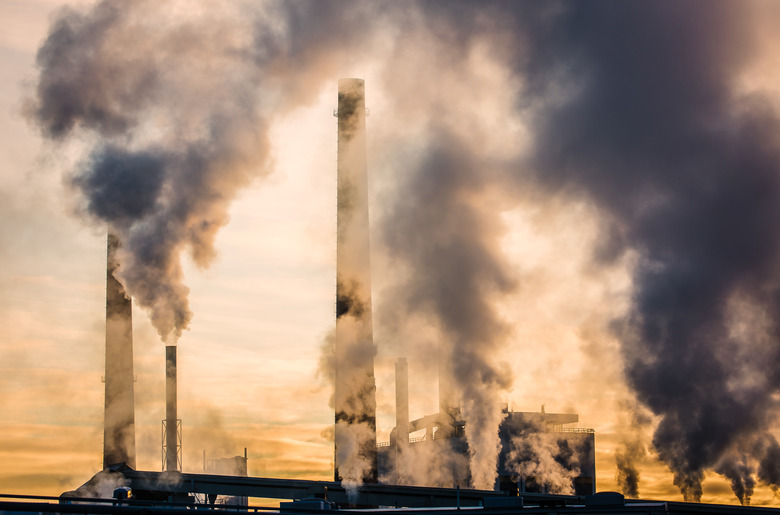Human Activities That Affect The Ecosystem
Humans interact with the world around us every day, but some of our actions are more harmful than others. As our population approaches 7 billion people, the effects of human activities on the ecosystem, including the water, air, land and the life that we share the world with, are almost immeasurable.
Pollution
Pollution
Humans pollute the land, water and air with unwanted refuse. Almost 2.4 billion people don't have access to clean water. The U.S. alone produces 147 metric tons of air pollution. In some countries, the smog caused by air pollution is deadly and can block out the sun in a dense haze. It is rare to find a beach in the world that doesn't have litter. Humans produce about 300 million tons of plastic each year. More than 8 million tons of that plastic are dumped into the oceans, and in 2017, an estimated 5 trillion pieces of plastic littered the seas. The plastic in the oceans has devastating effects on wildlife. In 2017, for example, a beached whale discovered off the coast of Scotland died because of the amount of plastic it had consumed – about nine pounds of plastic bags were found coiled in its digestive tract.
Global Warming
Global Warming
Environmental scientists have been warning us for decades that the CO₂ emissions that come from burning fossil fuels are affecting the planet's ecosystem. The increase of CO₂ in the atmosphere traps heat that would otherwise escape into space, increasing the Earth's overall temperature. This has caused Arctic ice and glaciers to melt and raise ocean levels. The loss of reflective ice and increase in water, which absorbs heat, adds to the rising temperatures in a cycle that is predicted to cause ocean levels to rise 1 to 4 feet by 2100.
Genetic Modification
Genetic Modification
The use of genetic modified organisms, or GMOs, has played an important role in increasing crop yields so we can feed our populations. In addition to providing better crop yields, modified plants are better able to resist disease and parasites, tolerate more extreme temperatures, or thrive with less water. However, modifying plants has not always been intentional. For example, continued use of herbicides, like glyphosate, has caused many weeds to become immune to their effects. In fact, 249 species of weeds are now immune to all normally used herbicides. The only way to get rid of them is to till the soil, which exposes the soil to sunlight and kills the organisms that help make the land fertile.
Deforestation
Deforestation
For every corn field you see, chances are good there was once a forest in its place. As our population continues to increase, humans create more and larger farms, which means removing the dwindling number of forests. Forests are also cleared for the lumber that we use to build our houses and to make room for new houses. About 18 million acres of trees are clear-cut every year for wood. This has devastating effects for the wildlife that once called those forests home.
Positive Effects of Human Activities
Positive Effects of Human Activities
Not all the ways that humans affect the ecosystem are negative. Every time you recycle used paper, plastic or metal, or pick up a piece of trash from the sidewalk, you have a positive impact on the environment. Others are committing their time and energy to large projects to positively change the ecosystem. In 2011, for example, a 16-year old inventor named Boyan Slat, created a device that can sweep the plastic from the ocean. He later founded The Ocean Cleanup project to begin putting that technology to use. It could clean up half the plastic currently in the Great Pacific Garbage Patch in five years.
Cite This Article
MLA
Weedmark, David. "Human Activities That Affect The Ecosystem" sciencing.com, https://www.sciencing.com/human-activities-affect-ecosystem-9189/. 9 March 2018.
APA
Weedmark, David. (2018, March 9). Human Activities That Affect The Ecosystem. sciencing.com. Retrieved from https://www.sciencing.com/human-activities-affect-ecosystem-9189/
Chicago
Weedmark, David. Human Activities That Affect The Ecosystem last modified August 30, 2022. https://www.sciencing.com/human-activities-affect-ecosystem-9189/
